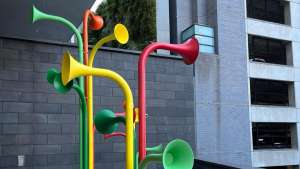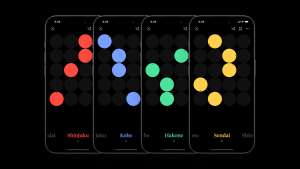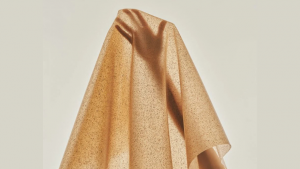During the 19th century in China, many communities were structured around highly patriarchal systems. Women were forbidden from accessing any kind of formal education – a common control strategy and disempowerment tool. If a woman didn’t know much, she couldn’t challenge the system and more particularly – her husband.
A small revolutionary group of peasant women in the Jiangyong county of Hunan province developed Nüshu – a secret language. Literally translating to “women's writing”, this gender-specific practice is revolutionary because of how it enabled working class women to penetrate through oppressive patriarchal and classist environments.
Without any standard stationery such as pen and paper, these women found a way to share their stories using writing. They would write their heartfelt messages on objects such as fans using sharpened bamboo stylus dipped in ink. They would also embroider their Nüshu scripts on fabrics such as quilts, aprons, and handkerchiefs.
Contrary to contemporary interpretations, Nüshu was not developed in spite of men and patriarchal society – in fact, it was not even about men. Nüshu scripts reflected the different phases of women’s lives and the topics could range anything from marital life sorrows, prayers, pleas to goddesses and even poetry.
How the script works:
The Nüshu script is syllabic, with each sign standing for a distinct unit of sound in the local dialect.
The characters are made up of four different types of strokes namely: dots, horizontals, verticals, and arcs.
From Chinese characters, Nüshu is visually distinguished by its fine wisps, thin strokes, and elongated lines.
Like traditional Chinese texts, Nüshu was typically written from top to bottom, with columns arranged from right to left. However, Nüshu characters are phonetic (representing sounds), while standard Chinese characters ideograms (representing meanings rather than pronunciations).
As of today, Nüshu is the only written language developed by women that has been discovered in the world.









